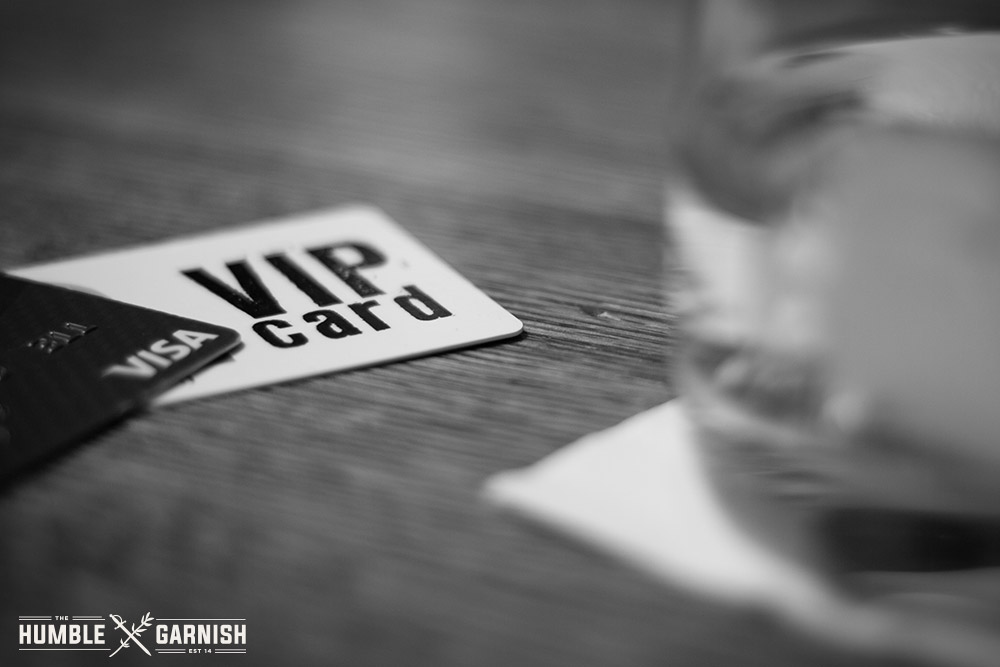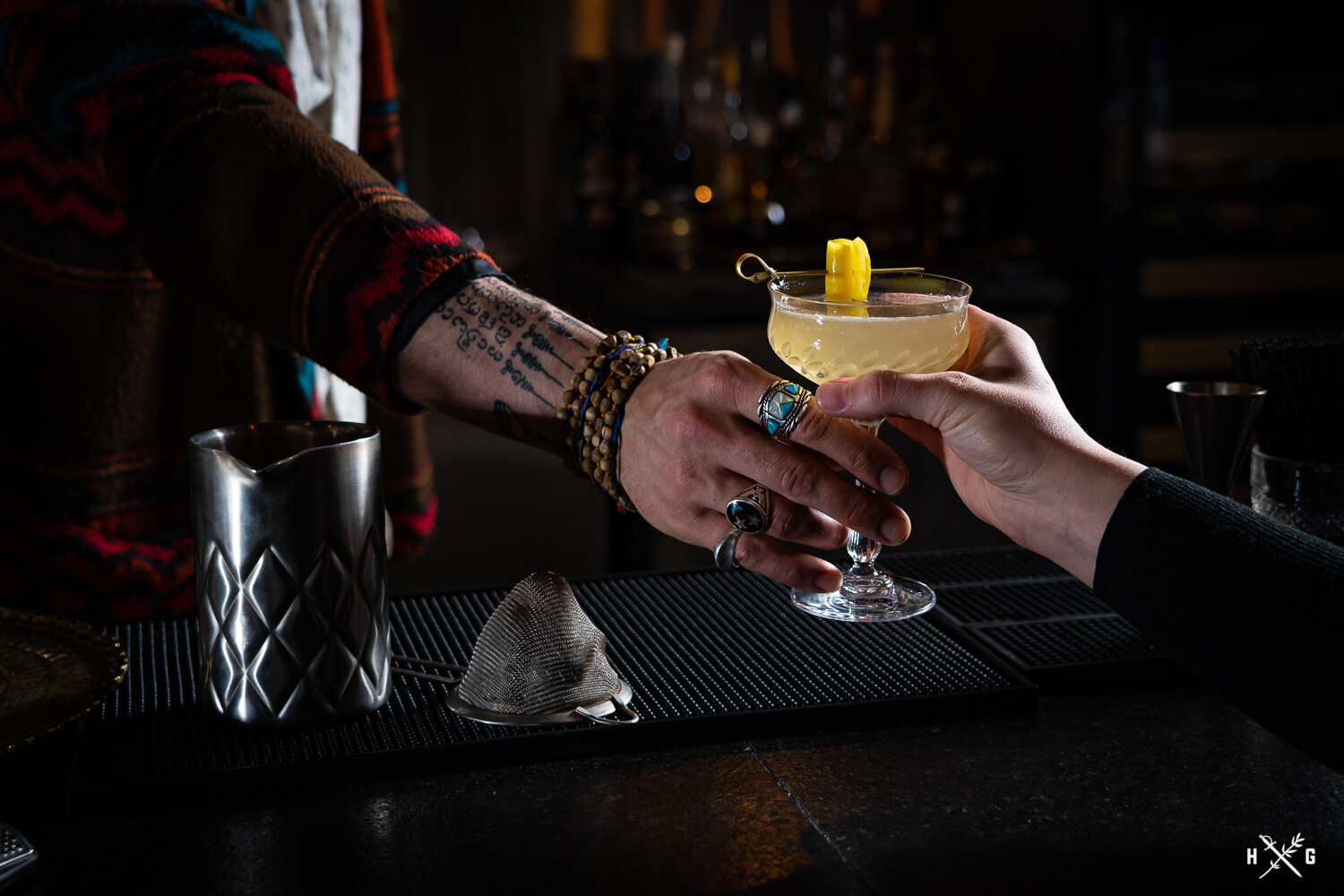There are no shortage of articles promising to share the secret to getting preferential treatment at a bar or restaurant. We want the bullet point list that puts us on the fast track to “VIP status”. However, the paradox to receiving status at an establishment is first and foremost about losing any sense of entitlement. Strive to be a good customer, not to be treated special. A reputable establishment will provide you with a good experience out of a sense of duty and as a source of pride. Rather than trying to attain status at an establishment, focus inwardly and follow four simple rules.
- Be Authentic
- Communicate Intelligently
- Practice Mindfulness
- Show Respect
Be Authentic
Authenticity is the base for the rules that follow. In this context what I mean by authenticity is practicing the golden rule without expectation of anything in return. Treat others as you want to be treated because it’s part of being a decent human, not because you want preferential treatment. Being a good patron is not about being a regular, it’s about fostering authentic relationships. There are plenty of people who frequent establishments, but can’t name one person that works there. Simply being a regular means nothing if you’re unpleasant, a bad tipper, etc.. It pays to invest in relationships.
Communicate Intelligently
Clear communication is the most effective of all the rules because people don’t leverage it to its full potential. Basic communication skills like learning people’s names and using eye contact can be mastered by anyone. I suggest putting your phone away when a server or bartender is attending to you, or even better put it in airplane mode so you can enjoy your present company. It’s worth addressing the use of stand-ins for names. Most people don’t want to be called chief, bro, or babe, and they don’t want to be whistled at, snapped at, or have money waved at them. In a fast-paced and noisy environment communicating with body language can mean the difference between being noticed or someone assuming you are taken care of. If you’re ordering a drink at a bar you can lean in towards the bar, place a hand on the bar, push your empty drink away from yourself, and always try to make eye contact. If you’re at a restaurant, making eye contact is a great place to start since you’re seated. If you’re finished with a meal then properly placing silverware on top of the plate is a great signal. Practicing clear communication is the simplest element to change and the skills are useful in all facets of life.
Practice Mindfulness
Practicing mindfulness is generally thought of as a tool for personal development, and seldom as something to be practiced with the intent of helping others. Mindfulness is being observant of what is presently going on around you. When practicing mindfulness you’re able to put yourself in another’s shoes and ask how they would like to be treated. I realize this seems irrational and runs counter to common practice in this context. It seems irrational to go out and spend money only to try to sympathize with your server. Mindfulness means that you are aware of how valuable your server or bartender’s time is, especially if they are experiencing a rush of customers. In this event, if you are a regular, be patient to ensure that new customers have a great experience. Understand that time and efficiency matter to those serving, so if you’re in a group make sure that everyone knows what they want when the order is taken. It’s also important to understand the hours that those in the service industry work. Shifts tend to be long and are generally during the prime social hours when most people are with friends and family. Bartenders could have a couple more hours of work after closing time in order to clean and reset the bar. None of these are excuses for poor service, but at the very least show a little grace when something trivial isn’t correct.
I think the importance of tipping well is something that is common knowledge. What is not common knowledge is how tipping works, because there is no standard system. Tips are often shared and divided different ways, so the only way to know is to ask. Tipping a low dollar amount to reflect poor service you received from a waitress could also impact someone who had nothing to do with that service.
Show Respect
Respect both the physical establishment and the people working there. The way I like to think of it is, “Would you do this at a friend’s home if they invited you over for dinner?” Most people don’t rearrange their friend’s furniture or steal their glassware. The owners of local establishments work hard to run their business and to pay their employees. Destroying or stealing their property hurts the business, which trickles down to the employees. A reputable establishment should be staffed with only the best people who have your interests in mind, so treat them as a host, as they want to ensure you have a good experience. And to end on a lighter note regarding respect, don’t underestimate or forget the impact of saying “please” and “thank you”.
Ultimately, the way to be “treated like a VIP” is not to act like one or attempt to achieve that status. Striving to be a good patron will result in respect that will get you some perks from time to time. It’s gratifying to be a regular where you know everyone’s names, they know yours, and they either know what you’re going to order or have a special suggestion based on your preferences. If that’s not VIP, then I don’t know what is.
Additional Resources
“Last Call!” – A great article by Tim Miner on last call protocol.
What Every BODY is Saying: An Ex-FBI Agent’s Guide to Speed-Reading People
The Tim Ferriss Show – The Magic of Mindfulness: Complain Less, Appreciate More, and Live a Better Life
Stuff You Should Know – “How Tipping Works”
The Ultimate Guide to Tipping Etiquette
Ask the Critic: Here’s How Tipping Actually Works


